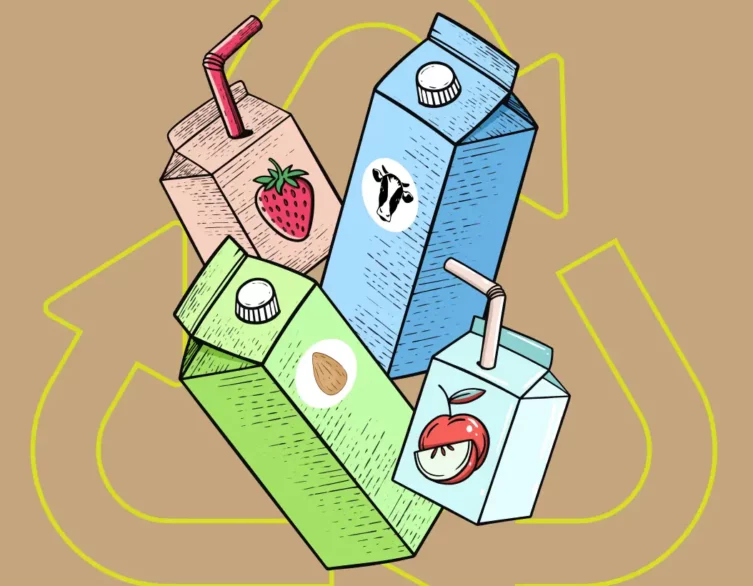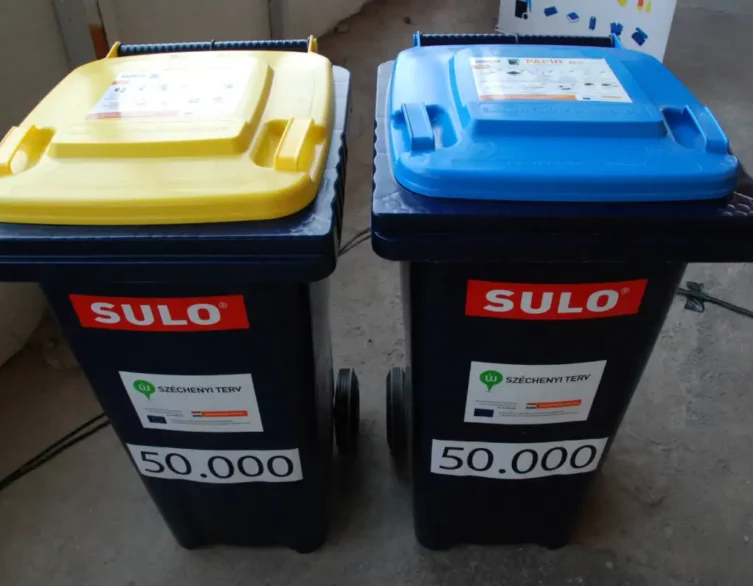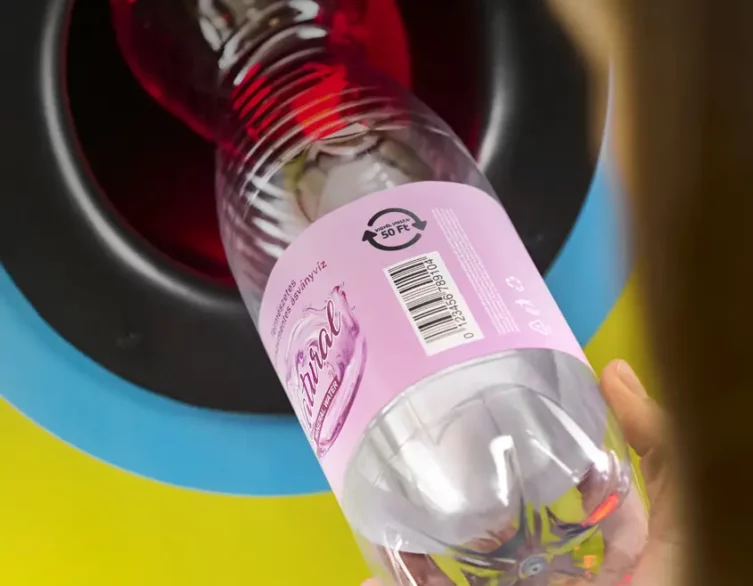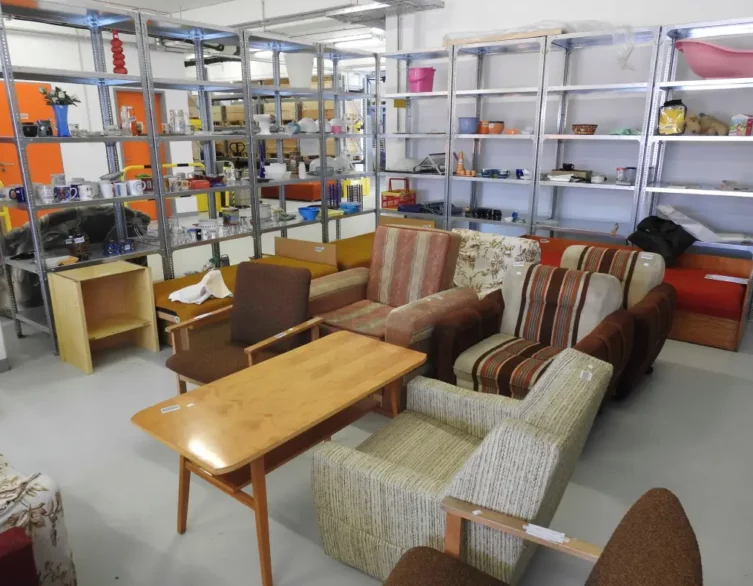Recycling Options in Budapest: A Guide to Sustainable Waste Management

Budapest, the capital city of Hungary, has made significant strides in recent years to promote sustainable waste management and encourage recycling among its residents. The city offers various recycling options to help minimize the amount of waste sent to landfills and reduce the environmental impact of its growing population. It is important to note that selective waste collection is not only an option but also a legal obligation for residents.
Budapest has implemented a comprehensive system that allows citizens to separate and dispose of their recyclable waste conveniently.
Household Selective Waste Collection
- Blue lid container: For newspapers, magazines, notebooks, books, corrugated paper, wrapping paper, and cardboard boxes. Boxes should be flattened before placing them in the container to minimize space.
- Yellow lid container: For PET bottles, rinsed household bottles and their screwed caps (e.g., shampoo, shower gel), clean household foils (bags, packaging foils), washed yogurt cups, rinsed beverage cartons (milk, juice boxes), household metal waste (e.g., cutlery), and metal cans (beverage and food cans). Plastic bottles and beverage cans should be flattened to save space.

Selective Waste Collection Islands
The Selective Waste Collection Islands are designated areas where residents and visitors can dispose of their recyclable waste materials separately from general waste. These islands typically consist of color-coded containers for different types of recyclables, such as:
- Blue containers: For paper and cardboard waste
- Yellow containers: For plastic packaging and metal cans
- Green containers: For colored glass
- White containers: For clear glass
By separating your recyclable waste and disposing of it in the appropriate containers, you contribute to Budapest’s efforts to reduce waste and promote a cleaner environment. The collected materials are then processed and recycled, conserving natural resources and reducing the amount of waste that ends up in landfills.
Bottle Deposit Refund System
From January 1, 2024, a mandatory deposit return system has been introduced in Hungary. Most ready-to-drink or concentrate beverage products with plastic, metal, or glass packaging between 0.1 and 3 liters will be subject to a mandatory deposit fee. Consumers pay a 50 HUF deposit fee per bottle at the time of purchase, which they can get back by returning the empty bottles in a returnable condition to a machine or manual return point.
The returned bottles are recycled and re-enter the circulation as recycled products. Regardless of the type of bottle, a 50 HUF deposit fee is refunded. By participating in this system, consumers contribute to the circular economy and protect the environment. Only the bottles and cans displaying the refund icon can be exchanged at the bottle collector machines. Look for the circular icon on the bottles:

REpont App: Hungary’s New Recycling Solution
The REpont app is designed to assist you in the recycling process and make your experience more convenient. With the REpont app, you can easily locate the nearest REpont recycling machine, where you can return your undamaged metal, plastic, or glass bottles marked with the recycling symbol. The app’s map feature allows you to find the closest machine to your location, ensuring that recycling is always within reach.
One of the great features of the REpont system is the ability to request the recycling fee to be transferred directly to your bank account. Once you’ve returned your bottles, the refund will be processed within a few minutes. During busier periods, the transfer may take slightly longer, but rest assured that as long as the machine has successfully identified your bottles, you will receive your refund.
In addition to bank transfers, you can also opt to receive your refund in the form of a voucher that can be used for purchases in participating stores. Alternatively, you can choose to donate your refund to a charitable cause, making your recycling efforts even more meaningful.
The REpont app is available for both iOS and Android devices, making it accessible to a wide range of users. By using this app and participating in Hungary’s new recycling system, you can play a part in preserving the environment while exploring the beautiful country.
Waste Collection Yards and Awareness-Raising and Reuse Centers
Budapest currently has 18 Selective Waste Collection Yards (hulladékudvar) where residents can dispose of their selectively collected waste. Two of these yards are located on the same property as the city’s reuse centers. The waste yards accept certain types of separately collected hazardous waste, waste requiring special treatment, and packaging waste. These recyclable materials include glass, electronic waste, and even hazardous household items like batteries and chemicals.
The waste collection services at these yards are available free of charge to residents who present a valid Hungarian address card, residence permit, official certificate, registration certificate, or registration form. However, there are daily and annual limits for each type of waste.
Best deals of Budapest
It is important to note that the free waste collection services are only available to residents up to the specified quantity limits. The waste yards do not accept waste from businesses, even for a fee, if the daily or annual limits are exceeded or if the required documentation is not provided.
Visitors are kindly requested not to leave waste in front of the waste yard or on public property during the yard’s closing hours, as this is considered illegal waste disposal and may result in a report being filed.
Waste Reuse Centers
Budapest currently has two Waste Reuse Centers where residents can drop off items they no longer need but are still usable by others, free of charge. These centers accept items that are in usable condition and can still fulfill their original function, such as baby equipment, toys, sports equipment, furniture, books, kitchen utensils, and home decor items.
For tourists visiting Budapest, these Waste Reuse Centers offer a unique opportunity to find interesting and affordable items while supporting a sustainable and environmentally friendly initiative. The items dropped off at the centers are available for anyone to take away after paying a small storage fee, which ranges from 100 to 10,000 Hungarian Forints (approximately 0.30 to 30 EUR) depending on the size of the item.
By visiting these centers, tourists can not only find unique souvenirs or practical items for their stay in Budapest but also contribute to reducing waste and promoting the reuse of goods. The Waste Reuse Centers aim to raise awareness about the value of used but still usable items and encourage a more environmentally conscious lifestyle.

The centers are part of Budapest’s efforts to develop a sustainable waste management system and reduce the amount of waste sent to landfills. They also serve as educational hubs, offering interactive workshops and classes on selective waste collection, composting, and the waste management tasks carried out by the Budapest Waste Management Company (FKF).
Composting
The city also encourages composting as a means of reducing organic waste. Budapest has introduced a pilot program for residential composting, providing participating households with compost bins and educational materials on how to properly compost their food scraps and garden waste. This initiative not only diverts organic waste from landfills but also produces nutrient-rich soil for gardening and landscaping.
Green waste, which includes tree and bush trimmings, cut grass, and weeds, is collected once a week on a designated day, depending on your service area. You can find the specific collection day for your area on the maps available on the FKF (Budapest Public Space Maintenance Company) website.
To use this service, simply place your green waste in the designated biodegradable bags, which feature the FKF logo and the text “KERTI ZÖLDHULLADÉKGYŰJTŐ-ZSÁK” (Garden Green Waste Collection Bag). These bags should be placed in front of your property, in a visible and accessible location for the collection vehicles, by 5 a.m. on your designated collection day. Please note that green waste in any other type of bag will not be collected.
In addition to the biodegradable bags, you can also place smaller branches and twigs (up to 10 cm in diameter) next to the bags. These should be cut to approximately one-meter lengths and tied together with string of an appropriate thickness. Thicker branches will not be collected.
The green waste collection service operates from spring to autumn, during the vegetation period. By participating in this eco-friendly initiative, you can help contribute to a greener and more sustainable Budapest during your visit.
Christmas Tree Recycling Options in Budapest
After the Christmas holidays, approximately 500-600,000 coniferous trees end up on the streets of Budapest. The Budapest Public Space Maintenance Company (FKF Zrt.) is responsible for managing and recycling this large quantity of trees each year.
According to FKF Zrt.’s experience, the peak period for disposing of Christmas trees usually starts after Epiphany on January 6th and lasts for about one and a half months. During this time, dedicated “Christmas tree routes” are used to collect the discarded trees. Before and after this period, regular waste collection vehicles gather the evergreens.
Residents have several options for disposing of their trees. They can place them next to their garbage bins, next to the containers at collection points, or at one of the more than 250 designated collection sites. However, when placing trees next to bins, it is important to ensure that they do not obstruct pedestrians, parking on the road, or vehicle traffic.
The collected coniferous trees are first shredded by FKF Zrt. staff and then transported to the boilers of the Budapest Waste Utilization Plant. In the furnace, the waste burns completely at a temperature of 1000-1100°C on the grate. Due to its high resin content, pine is an excellent fuel, and the steam generated by its combustion is used to produce electricity and district heating by expanding it in a turbine.
The turbine-generator unit has a nominal capacity of 24 MW. The portion of the generated electricity that exceeds self-consumption is fed into the national grid. The steam from the turbine extraction is used to heat the Káposztásmegyer housing estate via a heat exchanger, in cooperation with the Újpest Thermal Power Plant.
In summary, Budapest offers a well-organized system for recycling Christmas trees, with multiple collection options available to residents. The collected trees are efficiently utilized as fuel to generate eco-friendly district heating and electricity for the city.
Recycling Options for Textiles
In recent years, Budapest has made significant strides in promoting sustainable fashion and providing recycling options for clothes. With an estimated 60-80 thousand tons of clothing discarded annually in Hungary, 90% of which ends up in landfills, it is crucial to explore eco-friendly alternatives.
One of the most accessible options for recycling clothes in Budapest is through the use of textile collection containers. Textrade Kft., in partnership with MOHU, currently operates 1,500 clothing collection containers across the country, with plans to expand to 6,000 containers by 2027. These containers provide a convenient way for residents to dispose of their unwanted clothing responsibly.
In addition to recycling through collection containers, Budapest has witnessed a growing trend in second-hand and vintage clothing stores. Establishments like LoveChild Vintage Budapest and Szputnyik Shop have gained popularity among younger generations who appreciate the uniqueness and sustainability of pre-owned garments. These stores offer carefully curated, high-quality clothing items, often featuring world-renowned brands.
Fashion designers in Budapest are also playing a role in promoting sustainability by breathes new life into forgotten styles, creating entirely new designs from old garments. By repurposing and upcycling clothes, designers are extending the lifespan of textiles and reducing waste.To further support the recycling efforts, experts advise consumers to invest in quality garments that can be worn for extended periods. When purchasing new items, it is essential to consider their necessity and potential longevity. Clothing can have a lifespan of several decades if repurposed as accessories or passed on to others.
As Budapest continues to prioritize sustainability in the fashion industry, it is crucial for residents to be aware of the available recycling options and to make conscious choices when disposing of their unwanted clothing. By utilizing textile collection containers, supporting second-hand and vintage stores, and embracing upcycling, individuals can contribute to reducing textile waste and promoting a more sustainable future for the city.
Educational Campaigns and Special Eco-Friendly Programs
To further promote recycling and environmental awareness, Budapest has implemented educational campaigns and initiatives targeting both adults and children. These programs aim to inform residents about the importance of recycling, proper waste sorting techniques, and the environmental benefits of sustainable waste management practices.
Educational Programs
The Budapest Waste Management Company has been offering an Environmental Education Program since 2010 to promote environmental awareness and responsible attitudes among the younger generation in Budapest. The program is designed for students in educational institutions and is conducted through interactive lessons, activities, and presentations tailored to different age groups.
The topics covered in the program include the waste hierarchy (disposal, incineration, recycling, reuse, and prevention), circular waste management, composting, global environmental crises and their possible solutions, and the impact of the pandemic on our world. The educational and awareness-raising activities are provided free of charge to all educational institutions in Budapest.
The company’s Education and CSR Group staff conduct these activities in the children’s familiar environment, such as classrooms or designated areas within the institution, using interactive tasks, visual aids (short films, pictures, etc.), and teaching materials provided by the company. The duration of each session is adapted to the institution’s schedule, typically lasting 45 minutes in schools and a maximum of 30 minutes in kindergartens.
The Education Program also caters to students with special educational needs, learning disabilities, intellectual disabilities, and physical disabilities.
Since the 2020/21 academic year, the Education Program has also been available digitally, with educational staff conducting pre-arranged online sessions. In addition to the teaching sessions, educational institutions can also arrange visits to key facilities, such as the Budapest Waste Recovery Plant, the Pusztazámor Regional Waste Management Center, and waste collection yards, subject to prior agreement.
The company also operates two Awareness-Raising and Reuse Centers in the 15th and 18th districts of Budapest, which serve as venues for interactive lessons, creative workshops for kindergarten and school groups, and various other programs, alongside their waste collection yard and reuse functions.
Bookshelf Program
The Budapest Waste Management Company has launched an innovative program called “Bookshelf” to promote the circular economy and reduce waste in the city. The concept is simple: the company has set up bookshelves filled with a variety of books at various high-traffic locations across Budapest, such as customer service centers of public utility companies, municipal waiting areas, and even at the Budapest Zoo. Visitors are encouraged to browse through the selection, take a book that catches their interest, and either return it later or replace it with another book from their collection.
The books on these shelves are in good condition and have been donated by residents who no longer need them. The collection includes a wide range of genres, from Hungarian and foreign literature to children’s books, cookbooks, language learning materials, and various specialized books.
The Bookshelf program aims to keep books in circulation and out of the waste stream. By providing easy access to free books, the initiative encourages reading and the sharing of knowledge while reducing the number of books that end up in landfills.
As a tourist, you can participate in this eco-friendly program by visiting one of the many Bookshelf locations throughout the city. Take a book that interests you, enjoy it during your stay, and either return it to the shelf or leave another book in its place. This way, you can contribute to the sustainability efforts of the city while discovering new reads and potentially sharing your favorite books with others.
Look for the Bookshelves at various locations, including the BKK Customer Centers at Széll Kálmán Square, Baross Square, Kelenföld Railway Station, and Szentlélek Square, as well as at the Budapest Public Works Customer Service Centers, the Budapest City Archives, the Budapest Zoo, and several other public spaces across the city.
Incentives For Businesses
Budapest has introduced incentives for businesses and institutions to adopt eco-friendly waste management strategies. For example, the Green Office Program recognizes and rewards companies that implement recycling programs, reduce their paper consumption, and promote sustainable practices among their employees.
Summary
Budapest provides a well-structured recycling system that encourages residents to separate their waste at the source, making it easier to recycle and reduce the environmental impact of waste. Through curbside collection, recycling centers, composting initiatives, educational campaigns, and business incentives, Budapest is actively working towards reducing its environmental footprint and creating a cleaner, greener future for its inhabitants.
Image source: Budapest Waste Management Company












